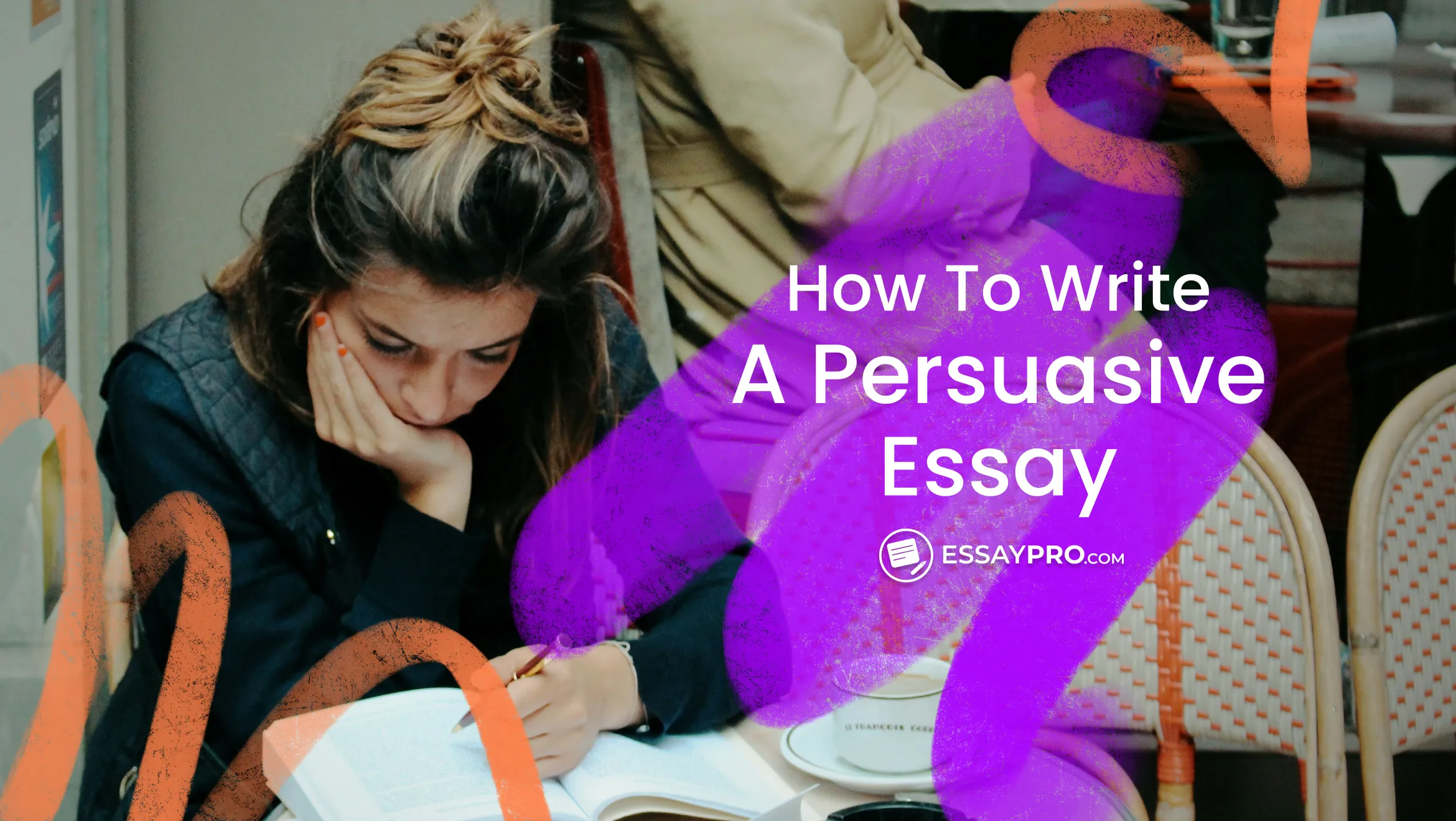Plagiarism can catch even seasoned writers off guard, as seen in the case of the esteemed historian Doris Kearns Goodwin. Accusations of copying arose in connection with her work, 'The Fitzgeralds and the Kennedys,' shedding light on the fact that plagiarism is not exclusive to novices.
In this guide to avoiding plagiarism, our paper writing service is here to help you with ethical writing! We'll explain what plagiarism is, why it's important, and ways to steer clear of it. We've also got FAQs and more to make sure your writing stays on the right path. Let's learn together and make your writing both original and ethical!
Let's Understand What Is Plagiarism
Plagiarism is more than just a word tossed around in academic discussions—it's a serious matter with real consequences. Simply put, it's when you use someone else's words, ideas, or work without giving them credit. It's like taking a shortcut without acknowledging the original path.
Think of it as borrowing without permission. If you copy and paste a chunk of text or paraphrase someone else's work without citing them, that's plagiarism. It's not just about following rules; it's about fairness and honesty in sharing knowledge.
To understand plagiarism, it's essential to recognize its different forms, from directly copying sentences to tweaking them slightly without acknowledging the source. It's a bit like walking a fine line between creating something original and borrowing too much from someone else.
In this exploration of plagiarism, we'll break down its various aspects and why it's a big deal. It's not about complicating things; it's about respecting the intellectual contributions of others and maintaining transparency in your own work. So, let's dig into the details and gain the insights needed to produce writing that's both original and ethical.
Reading an EssayPro plagiarism checker review can also provide practical insight into how students detect and prevent accidental plagiarism in their work.


Why Is It Important to Avoid Plagiarism
Understanding the importance of steering clear of plagiarism goes beyond mere academic protocol; it's about upholding the principles of integrity, credibility, and personal growth. Here's why avoiding plagiarism is a non-negotiable aspect of responsible writing, according to our service:
- Credibility Matters: When you present someone else's work as your own, it erodes the trust your audience or readers place in you. Originality builds credibility, establishing you as a trustworthy source of information.
- Respect for Intellectual Property: Just as you wouldn't want someone to take credit for your hard work, it's essential to respect the intellectual property of others. Citing sources appropriately is a way of acknowledging the effort and creativity that went into creating the original work.
- Fostering Your Own Growth: Writing is not just about producing content; it's a journey of personal and intellectual development. By avoiding plagiarism, you actively engage with the material, enhancing your understanding and contributing to your own growth as a thinker and writer.
- Adhering to Academic Integrity: In educational settings, plagiarism is a breach of academic integrity. Learning is a collaborative process that involves building on existing knowledge, and giving credit ensures a fair and ethical academic environment.
- Legal Consequences: Plagiarism can have legal repercussions. It's a violation of copyright laws and can lead to legal actions, damaging not only your reputation but potentially resulting in severe consequences.
.webp)
How to Avoid Plagiarism with These Tips
Now that we understand the significance of steering clear of plagiarism, let's delve into practical strategies to ensure your writing remains both original and ethically sound. From managing your sources effectively to understanding how to edit an essay through plagiarism checkers, each of these tips plays a crucial role in safeguarding your work:
- Manage Your Sources
- Effectively Credit Your Sources with Proper Citation
- Avoid Plagiarism While Quoting
- Express Ideas in Your Own Words through Paraphrasing
- Share Your Original Thoughts
- Ensure Originality with a Plagiarism Checker
Let's explore these tips in detail, along with examples of plagiarism, and equip ourselves with the tools to create content that stands on the pillars of integrity and authenticity.
.webp)
Manage Your Sources Effectively
To prevent plagiarism, it's crucial to keep a detailed record of your information sources. Imagine you're researching the effects of artificial intelligence on job markets. Ensure you note down the author's name, the publication date, and the page numbers of the articles or studies you consult. This meticulous approach not only helps you avoid accidentally using someone else's work without acknowledgment but also facilitates a structured and accountable writing process.
Credit Your Sources with Proper Citation
Crediting sources is an essential part of academic writing. When incorporating information or ideas from a source, whether through direct quotes or paraphrasing, adhere to the citation style prescribed by your institution or publication. Common styles include APA, MLA, Harvard style citation, and Chicago style format.
For example, in APA style, you'd include the author's last name and the publication year, like this: (Author, Year). This practice not only upholds academic integrity but also allows readers to trace back and explore the referenced material for a deeper understanding. Remember, the goal is not only to steer clear of plagiarism but to contribute to the scholarly conversation by acknowledging the voices that have shaped your understanding.
Avoid Plagiarism While Quoting
When incorporating quotes into your writing, it's essential to do so judiciously. Quotations should complement and enhance your ideas rather than overshadow them. For instance, if you're discussing the impact of globalization on cultural diversity, a well-placed quote from an expert in the field can provide valuable support. When considering how to avoid plagiarism, remember to maintain a balance – use quotes to emphasize key points while ensuring the majority of your text is comprised of your original thoughts and analysis.
Original Famous Quote: 'The only thing we have to fear is fear itself.' - Franklin D. Roosevelt
Correct Quoting: In the face of challenges, Franklin D. Roosevelt once famously declared, 'The only thing we have to fear is fear itself.'
Incorrect Quoting 1: Franklin D. Roosevelt once said, 'Fear itself is the only thing we have to fear.'
Incorrect Quoting 2: 'Fear itself is the only thing we have to fear,' Franklin D. Roosevelt stated.
Explanation: In the correct quoting example, the quote is integrated seamlessly into the sentence, providing context and attributing the statement to Franklin D. Roosevelt. In the first incorrect quoting example, the order of the words in the quote is changed, altering the original phrasing. In the second incorrect quoting example, although the meaning is preserved, the attribution is separated from the quote, which may lead to confusion about the source. When incorporating quotes, it's important to maintain accuracy in both wording and attribution to ensure proper representation of the original source.
Express Ideas in Your Own Words through Paraphrasing
Paraphrasing is integral to avoiding plagiarism. Instead of copying a passage verbatim, rephrase it in your own words while retaining the original meaning. For example, if you come across a study on the effects of exercise on mental health, paraphrase the findings to fit seamlessly into your discussion. This demonstrates a deep understanding of the material and allows you to incorporate external ideas into your work authentically. Strive for a synthesis of your voice with the insights you've gathered, ensuring a harmonious blend of originality and external support.
Original Famous Quote: 'Imagination is more important than knowledge.' - Albert Einstein
Correct Paraphrase: Creativity holds greater significance than mere facts, according to Albert Einstein.
Incorrect Paraphrase 1: Knowledge is less crucial than imagination, as stated by Albert Einstein.
Incorrect Paraphrase 2: According to Albert Einstein, knowledge is less important than imagination.
Explanation: In the correct paraphrase, the essence of the original quote is retained, emphasizing the importance of imagination over knowledge. However, in the first incorrect paraphrase, the meaning is altered by suggesting that knowledge is less important than imagination. In the second incorrect paraphrase, the emphasis on the lesser importance of knowledge is maintained, but the structure of the sentence is changed, deviating from the original meaning. It's crucial to capture the intended meaning accurately while rephrasing to avoid misinterpretation.
Share Your Original Thoughts
Your unique perspective and insights are crucial in enriching the academic conversation. It's important to note that while expressing your thoughts, you should also be aware of a concept known as 'self-plagiarism.' So, what is self plagiarism? This occurs when you reuse your own work without proper citation or permission, which can be considered a breach of academic integrity.
As you delve into topics like the implications of artificial intelligence in healthcare, ensure that your expressions are fresh and tailored for each piece of writing. While it's acceptable to revisit your own ideas, be cautious not to recycle entire sections verbatim without acknowledgment. For example, if you've previously discussed the role of AI in diagnostics in another paper, consider how you can present that information in a new light. If you find yourself in need of additional ideas, consider using our essay writer help. This approach maintains the authenticity of your work while ensuring your understanding of how to avoid self plagiarism.
Ensure Originality with a Plagiarism Checker
Leveraging technology through a reliable plagiarism checker is a proactive step to maintain the originality of your work. Before finalizing your writing, you can run it through our professional plagiarism checker for accurate results. This tool not only highlights potential instances of unintentional appropriation but also provides you with the opportunity to review and rectify any oversights.
Why Choose Our Plagiarism Checker?
- Accurate and Fast: Our advanced algorithm ensures a swift and thorough analysis of your text, saving you time while securing the integrity of your work.
- User-Friendly: Checking your work is as easy as copying, pasting, and clicking. Our user-friendly interface streamlines the process, eliminating unnecessary effort.
- Free of Charge: We believe in promoting academic integrity, and hence, our plagiarism checker is entirely free. There is no need to worry about additional costs – just focus on creating original content.
- Comprehensive Check: Our tool scans your paper against thousands of sources, offering a detailed analysis and highlighting any areas of similarity.
- Security and Safety: Your work is analyzed with the latest and best software, ensuring a secure environment for your text.
How to Use Our Plagiarism Checker:
- Copy your text.
- Paste your paper into the designated tab.
- Get prompt and precise results.
Additionally, our tool not only detects examples of plagiarism but also helps you understand which parts of your paper may need improvement. If you require additional tips on how to avoid plagiarism or assistance with editing, proofreading, or creating a new paper, our writing professionals are ready to support you.
Wrap Up
Congratulations on navigating our guide to ethical writing and avoiding plagiarism! Remember, your unique voice and ideas are your most powerful tools. By citing sources correctly, using quotes and paraphrasing effectively, and staying mindful of self-plagiarism, you're on the right track.
If you ever feel uncertain, don't hesitate to ask for guidance. And remember, it's always a good idea to check your work with plagiarism detection tools. If you need extra support, you even have the option to pay for essay that's 100% unique. Keep writing with honesty, and let your ideas stand out in the academic world.
Secure Your 100% Unique Essay Today!
Wave goodbye to generic papers! Dive into the brilliance of a 100% unique essay crafted with wit and wisdom.
FAQ
Can You Provide an Example of Plagiarism?
Original Source (from Martin Luther King Jr.'s 'I Have a Dream' speech): 'I have a dream that my four little children will one day live in a nation where they will not be judged by the color of their skin but by the content of their character.'
Plagiarized Version: 'I envision a future where my four young children will live in a country where they are not evaluated based on their skin color but on the substance of their character.'
In this example, the writer has closely paraphrased Martin Luther King Jr.'s iconic words without proper citation. To avoid plagiarism, it is crucial to either use direct quotes with correct attribution or rephrase the idea in one's own words while acknowledging the source.
How to Avoid Plagiarism Efficiently?
Here are key ways to avoid plagiarism efficiently:
- Cite Sources Properly: Learn and use the citation style recommended by your school. Make sure to credit every source you use in your work.
- Use Quotation Marks for Quotes: If you use someone else's words directly, put them in quotation marks and cite the source.
- Paraphrase Carefully: Rewrite information in your own words while keeping the original meaning. Ensure the structure is different.
- Check with Plagiarism Tools: Use tools like Turnitin or Grammarly to scan your work for potential plagiarism. They highlight similarities with existing sources.
- Take Good Notes: Keep track of source details like author names and publication dates as you gather information. It makes citing easier.
- Ask for Help: If you're unsure about citing or paraphrasing, ask your instructors for guidance.
What Repercussions Does Plagiarism Carry?
Plagiarism can lead to serious consequences:
- Academic Penalties: Schools may impose disciplinary actions, including failing grades or expulsion.
- Damage to Reputation: Plagiarism can harm your academic and professional reputation.
- Legal Consequences: In some cases, plagiarism may lead to legal repercussions, especially in professional settings.
How Can Plagiarism Be Identified?
Identifying plagiarism involves recognizing instances where one has presented someone else's ideas or words as their own without proper attribution. Common methods for detecting plagiarism include:
- Manual Inspection: Instructors and researchers may notice inconsistencies in writing style, tone, or language, prompting a closer examination of the text.
- Online Plagiarism Checkers: Various online tools, such as Turnitin or Grammarly, can compare your writing against a vast database of academic and non-academic content to highlight potential instances of plagiarism.
- Citation Analysis: Examining the citations in a document can reveal whether the writer has appropriately credited sources. Inadequate or missing citations may raise suspicions of plagiarism.
- Style Inconsistencies: Sudden shifts in writing style or a discrepancy in language proficiency within a document may signal that portions have been copied from another source.

Daniel Parker
is a seasoned educational writer focusing on scholarship guidance, research papers, and various forms of academic essays including reflective and narrative essays. His expertise also extends to detailed case studies. A scholar with a background in English Literature and Education, Daniel’s work on EssayPro blog aims to support students in achieving academic excellence and securing scholarships. His hobbies include reading classic literature and participating in academic forums.






